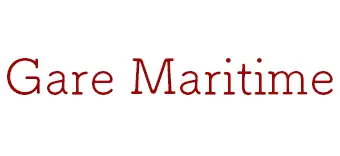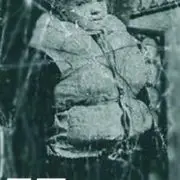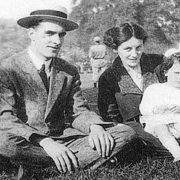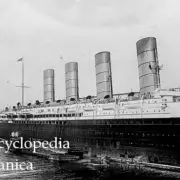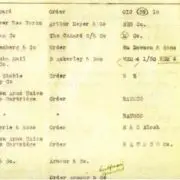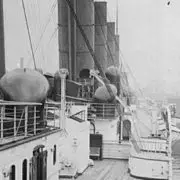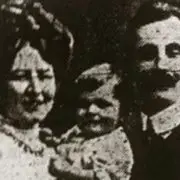The Lusitania : Part 8 : A Hint of Scandal
JOSEPH ALAN DREDGE 1872 – 1915 and EVELYN NORMAN DREDGE 1868 – 1915
They say that every family has a skeleton in the cupboard, this was one whose bones had been rattled a few years previous to their untimely demise aboard the RMS “Lusitania”.
Joseph Alan Dredge had been born in Hungerford, Berkshire, in early 1872, the third child of Joseph and Margaretta Dredge. Joseph Snr was an auctioneer and the family lived comfortably, employing a housemaid and enjoying the privileges of their rural life style.
Thousands of miles away, in Bengal, India, Eva Norman Graves, as she had been Christened, also enjoyed the comforts of a middle class life, albeit a much warmer one! Eva was from a highly respected Anglo Irish family whose roots went back hundreds of years in both countries. Eva had been born in Bengal on 5th June 1868, the first child of Henry William Graves and his wife Kathleen Sophia Seale. Her birth was followed by two further children, Lillian in 1872 and Henry George in 1884.
On 28th August 1886 Eva married, at the age of eighteen in Quetta, Harry Seymour Hazelgrove who had been born on 26th December 1860 and was working towards his ultimate goal of Colonel in the British Army. In 1888 a son was born and named Norman Seymour Hazelgrove. Like the sons of many British Army families of the era, Norman was sent away to England to be educated, attending a public school in Abbotsham, Devon.
Later events would suggest that the Hazelgrove marriage was not a happy one, but the couple lived together in India until October 1902 when Harry was ordered on active service to Aden. Rather than leave Eva behind in India Harry, who had by now attained the position of Colonel, arranged for her to travel to England until his posting was over, providing her with a very generous annual allowance of four hundred pounds.
Shortly after her arrival in England Eva, who was now calling herself “Evelyn” met Joseph Alan Dredge. Joseph had long since left the family home and was working as a produce manager. He had certainly lived in Nyasaland, West Africa, at one time and the meeting must have taken place following his return to England. Strangely, Colonel Hazelgrove’s sister appears to have been a willing participant to the affair and kept it secret from her brother. Hazelgrove travelled to England in May 1906, probably to re-claim his wife, only to find that Eva had given birth to an illegitimate child on 16th August 1904, naming one “Alexander Francis” as the father.
Eva had written to Colonel Hazelgrove before the birth of her child, but the letter appears to have gone astray and been returned to England where it eventually found its way into the Colonel’s hands. It read:
Dear Harry,
What I am now about to say to you will not, I fancy, surprise you very much, because our married life has for years past been such a farce. I do not intend at any time to return to you, as I have made up my mind to spend the remainder of my life with a man for whom I care more than I do for you, and with whom I have lived since the beginning of last year. Because you and I have not been happy together, there is no reason why you should not be happy in future with more congenial companionship, and I hope that you will be.
Yours
ENH
This was too much for Colonel Hazelgrove and he petitioned for the dissolution of his marriage on the grounds of his wife’s adultery with Alexander Francis. The case was heard by Mr Justice Bargrave Deane in January 1907. The proceedings stated that in April 1904, Mrs Hazelgrove had communicated with a Mrs Morice of Horsell, near Woking, Surrey on behalf of a friend, Mrs Francis, who was supposedly returning from India in May for her expected confinement in August. Arrangements were made for “Mrs Francis” to be received by Mrs Morice. In due course, Evelyn, passing herself as Mrs Francis, went to stay in Woking and was confined of a daughter. The child was duly registered on 5th November as that of Alexander Francis, shipping merchant and of Mary Evelyn Francis, formerly Dalton of The Cottage, Horsell.
Before pronouncing a decree nisi, Mr Justice Bargrave Deane declared that every enquiry had been made to find the true identity of “Alexander Francis” without avail and it was believed that the name was a fictitious one assumed to avoid discovery of the man’s true identity. Custody of Hazelgrove’s son, Norman, was also given to Harry, although it would only be a couple of years until he reached the age of twenty one.
At the time of the divorce, Joseph and Evelyn were living in West Africa where Joseph was employed as a produce manager. Their daughter, Margaret, appears to have remained in England. Over the following years they made a number of trips back to England to see the child and once the divorce was finalised were able to marry in London during the first few months of 1908. A few days after their wedding, Joseph re-wrote his will, leaving his effects to “My dear wife Evelyn” and in the event of anything happening to both of them, placing young Margaret in the care of his friend Theophilus Davies.
Possibly Evelyn wasn’t comfortable with the slight age difference between herself and Joseph as all her visits back to England indicated on the ship’s passenger manifests that she was several years younger than he. Possibly even Joseph didn’t know her true age! She invariably gave her place of birth as “London” on the manifests too instead of Bengal.
By 1915 Joseph was working for the Belize Estate and Produce Company in Belize, British Honduras. He and Evelyn planned a visit to Margaret and duly set sail for the USA from where they intended to finish the journey to England aboard the RMS “Lusitania”.
Several survivors mentioned the Dredges as “A nice couple” but little is known of their experiences during the sinking. It seems that they entered the sea and were carried out by the current.
A notice in the Personal Column of the London Times for Friday 14th May read:
“If any survivor of RMS Lusitania saw anything of Mr & Mrs Alan Dredge during the voyage & especially at the time of the disaster, he will confer a great favour by communicating with Clive Davies, 2 George Street, Mansion House E.C.”
The following Thursday there appeared in the Deaths Section:
“DREDGE – In the sinking of the Lusitania, Joseph Alan Dredge of Belize, British Honduras, son of Joseph Dredge of Barnet. Also Evelyn, his wife. They were last seen with their life-belts in the water. Indian and West African papers please copy.”
Margaret Dredge (Daughter) was cared for by Theophilus Davies and educated privately, going on to attend university.
Norman Seymour Hazelgrove (Son) eventually settled in New South Wales, Australia.
Colonel Harry Hazelgrove (Husband) re-married and had another child.
Geoff Whitfield (2008)
